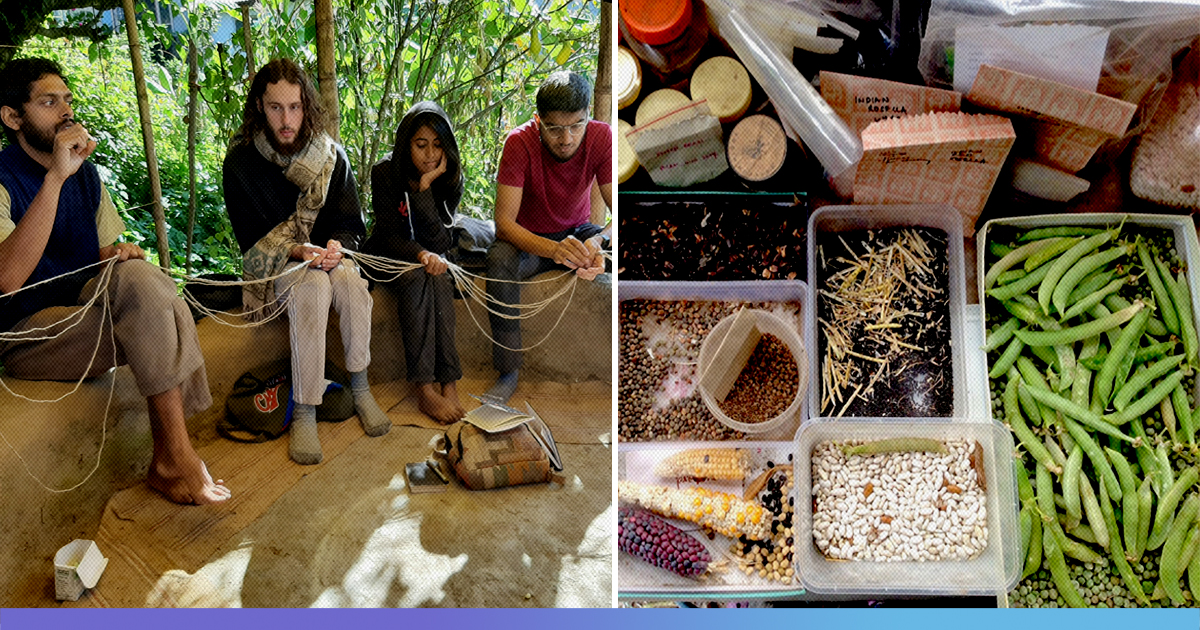A little more than 10,000 years ago, there was a revolution that has led to what we see today as civilizations, inhabitations and settlements of humans in geographical locations all across the globe. This revolution was the agricultural revolution.
The act of growing food is considered sacred by many tribes. Farmers are considered as lifelines of community settlements. Yet, with the information age, while mankind has grown in technology, communications, digitization etc., we are gradually not only moving away from the basics of basics â growing our own food but the way we are growing our food is also changing radically. Food is now seen as a commodity that can be bought and not a shared community resource. Besides, our connection with food is no more than our connection with an electronic gadget we buy in a showroom. This disconnection to our basic needs, that not only nourishes us physically but also our souls has led to disease and deterioration of our environment and our bodies.
To counter this trend, Spero and Robin, a couple from America started a farm in Upper Bir, Himachal Pradesh with the help of a young and talented local man â Matasharan to promote the practice of growing your own food, to preserve the heritage, wisdom, knowledge, practices and skills related to agriculture and farming. In 2016, they passed their legacy to Anshul and Angelica who, then took care of the farm until 2019 along with Matasharan who now handles the farm by himself with the help of some volunteers who want to learn about soil and food while working on the farm.
A typical spring at Shunya Farm
In the last six years, the farm has slowly evolved into a market farm, a demonstration of sustainable agricultural practices for small farms, a seed bank, a nursery and space for people to experience the abundance of nature and learn to grow their own food through volunteering and multiple courses.
Anshul graduated as an engineer and then moved to education to building/construction to farming for the purpose of exploring tools for a sustainable world. He also has experience as a facilitator with different organisations in Design Thinking. Angelica hails from Colombia, is an architect by profession and has spent time in Kodaikanal, Tamil Nadu and Auroville while working with soil as a medium for food and soil as earth for building.
Their experiment with the farm was to develop different ways of farming in this area, develop crops and seeds, create a market for the farm and see how a community farm can survive in the evolving context of Bir.
The farm is supported by individuals from Bir who take the seasonal produce from the farm every week. The farm also sells to a few organic restaurants and a local natural building institute. Besides food, the farm also provides seeds and saplings every season.
By re-visiting traditional wisdom and utilizing appropriate technology, the farm is growing into one of the alternatives for a better future.
Preserves in homemade apple cider vinegar at Shunya Farm
Anshul and Angelica spent the last two years learning about soil, food and the various relationships that nourish a farm and a person alike. They say they have learnt more about themselves than farming itself.
Rudolf Steiner, founder of the Anthroposophical Society, and one of the profound thinkers of the 20th century explains how food is the basis of the new consciousness required to deal with the crises humanity finds itself in. Healthy food will transform our ecological, social and spiritual relationships by transforming our consciousness.
To raise the quotient of our âhumannessâ and grow as a society, we need to reconnect with our food and look at it as not just a source of physical energy but also a source for bringing a transformation in our psyches.
Their own lack of knowledge and understanding about food propelled their journey to discover how humanity lost this connection with food in the first place and how one can grow food that is pure and wholesome in todayâs context.
The seed bank at Shunya Farm
ââIn 2016, we travelled in North Colombia visiting some indigenous tribes and observed first hand how our development models destroy self-sustenance and create a culture of scarcity and disease. We documented the stories from this time here at our website,â says Anshul
âThis experience reinforced our belief in the power of food and the need to find sustainable agriculture solutions for creating resilient communities and our will to work on the land and with the soil only grew strongerââ he adds.
Innovative technique of cultivation by making circular beds for sowing
Shunya farm has been a work of learning and self-discovery as Anshul and Angelica put it. The work has meaning in doing their bit in reversing the ongoing destruction of communities, natural resources and putting in place the culture of farming for creating a better way to live, eat and grow food.
…










